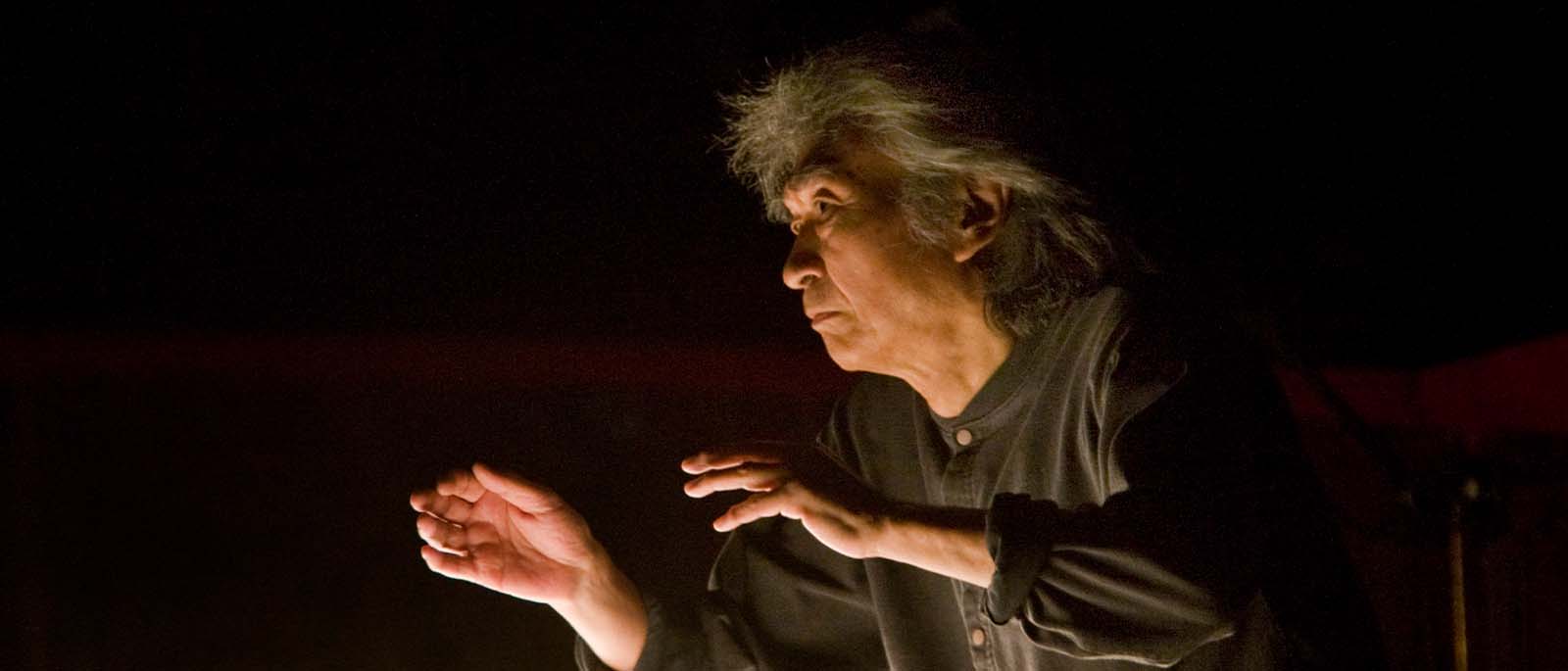
Seiji Ozawa, 1935–2024
The Metropolitan Opera mourns the passing of conductor Seiji Ozawa, one of the most significant and beloved musical figures in the United States and in his native Japan for more than six decades. Legendary in this country for his 29 years as music director of the Boston Symphony Orchestra from 1973 to 2002—the longest tenure in the position in that organization’s history—he also held important posts with the San Francisco Symphony, Toronto Symphony Orchestra, Chicago Symphony Orchestra, and New York Philharmonic.
One of Ozawa’s closest comrades was Met General Manager Peter Gelb. “I was Seiji’s friend and admirer for five decades from the time I joined the Boston Symphony in 1978—when he was classical music’s most beautiful and kinetic of conductors—to my visit with him last year in Tokyo, where, ravaged by years of illness and treatment for esophageal cancer, he was no longer able to speak. In his prime, which lasted many years, there was never a more brilliant and beloved musician. His impact on classical music in Japan was unprecedented, and his positive influence on the rest of the classical music world changed many of our lives, including mine, permanently for the better.”
While the maestro only led 11 performances of two productions at the Met, they were memorable occasions. Ozawa made his company debut in 1992 leading a run of Eugene Onegin that featured soprano Mirella Freni as Tatiana and highlighted his affinity for the passionate music of Tchaikovsky. He then returned to the Met in 2008 for thrilling performances of Tchaikovsky’s The Queen of Spades. On both occasions, his electrifying presence produced a stimulating and congenial collaboration with the cast and the Met Orchestra and Chorus, and company members who were present remember Ozawa with affection.
Ozawa’s most extensive contributions to opera were made at the Vienna State Opera, where he became principal conductor for eight years following his time in Boston.
Ozawa was a pioneering cultural force, both increasing the popularity of Western classical music in Japan—where he helped found the Saito Kinen Orchestra and Saito Kinen Festival, among numerous initiatives dedicated to nurturing young artists—and raising the profile of Japanese and Asian musicians in the West.
The Met extends condolences to Ozawa’s family and his many friends and colleagues around the world.